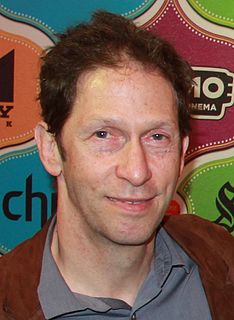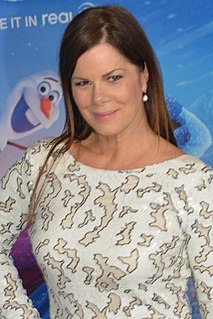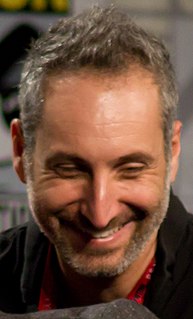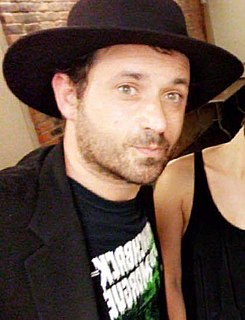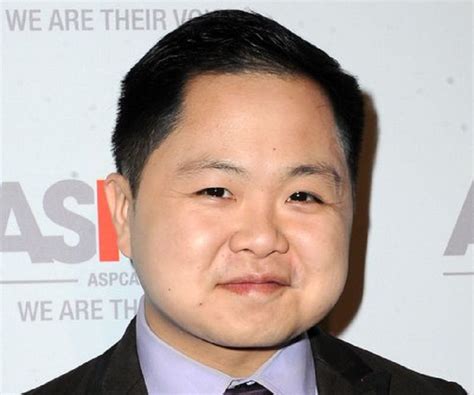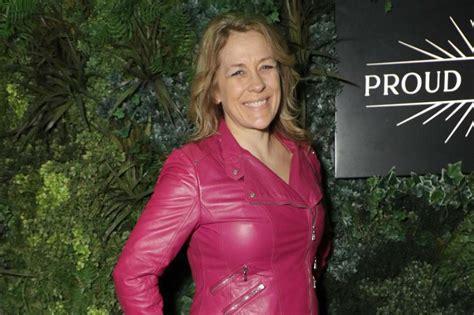A Quote by Tim Blake Nelson
When I'm in a movie, what I always do, instead of sitting in a trailer or watching a DVD, is I go on the set and watch the director work and the actors work, and sometimes I'll hang out with B camera and watch what they're up to and ask questions because there's so much to learn about the medium.
Related Quotes
In the old days when I first was coming up, you would turn up on set in the morning with your coffee, script, and hangover and you would figure out what you were going to do with the day and how you were going to play the scenes. You would rehearse and then invite the crew in to watch the actors go through the scenes. The actors would go away to makeup and costume and the director and the DP would work out how they were going to cover what the actors had just done.
I'm watching the show and I'm watching the audience watch the show. Because once you leave the rehearsal room, you have space and you can see it. You can watch them watch it. You can't see your work, really, until you're in the theater. You have no perspective. That's not part of my job, to go, "Oh my God, they're so brilliant." I'm not required to swoon.
Of course, you can never watch something like somebody else watches something like you, but nonetheless, you have to try. So I think on camera you learn a lot about how much the camera does for you, which is what is the great luxury of movie acting. Or acting whether it's TV or movies or whatever it is, that the camera's really such a gift because there's so much that it sees and does if you're willing to just be open and expose yourself and all of that. So you also learn what doesn't matter. And sometimes when you think about things, you think things matter that don't matter.
I have two little kids and I enjoy watching movies with them, and I can't watch every movie with them. Sometimes it's because it's obviously not appropriate to watch The Bourne Identity with your kids, but a lot of times it's because it's torture to watch the movies that they want to watch, as a parent.
When I used to be a contract player in 1954 at Universal, I wasn't getting good roles. I was getting one-liners, and then I'd be gone. But I'd hang around; I'd watch guys. And when I had days off, which was most days, I'd go down and watch other sets while they were shooting. Watch Joan Crawford or whomever. Just watch how they worked and how the director handled them. I didn't know anything about making movies, and there's a lot to learn.
I learn an amazing amount from watching television and movies because if you watch things that really work and don't work, it teaches you so much about what you do for your own craft. I think that if you're auditioning for a show, you need to know the world of the show, or you can't represent it very well.
With a director it's all about the work; I'd work with a great director over - you know, I'm not the kind of actor who that doesn't go, 'I want to play this role.' It's more like, 'I want to work with this director,' regardless of what the role is because if it's a good director, you'll probably find a good role because it's a decent film. But a mediocre director will always make a mediocre movie.
Every film you work on is different, and that's part of what it's like for anybody who works on a film, is to learn how to work with others. Learn from top to bottom. Actors have to learn how to work with the director and the director has to learn how to work with actors, and that's not just those two departments.
I think some horror authors are trying to scare you, but with me, I'm as scared as the reader is of the story. I've always been that way, since watching the 'Twilight Zone' movie - watching 'Firestarter' when my parents were out, or sneaking out to watch 'A Nightmare on Elm Street' at a friend's house because I couldn't watch it at my house.
Actors can write and produce too. Then when I was working on Jason Bourne - having had that experience - instead of going back to my trailer and being separate from everyone else, I would sit behind the monitor and watch Paul Greengrass work and be much more included in the process. That was new for me and really enriching.
